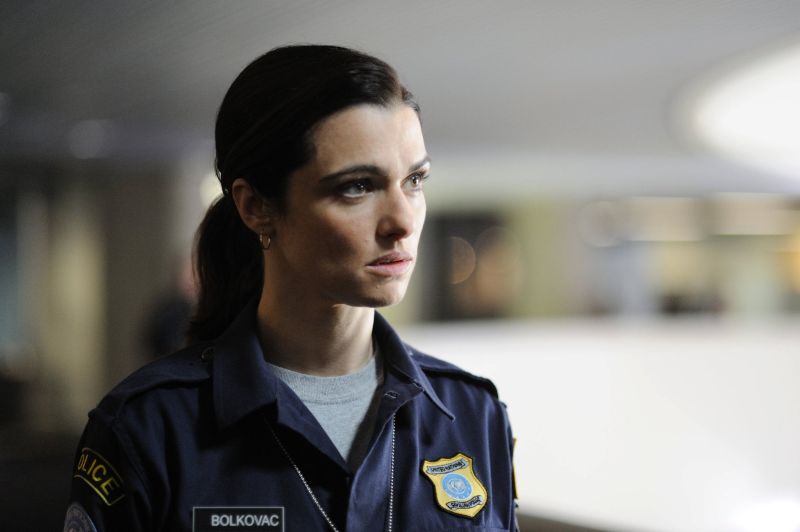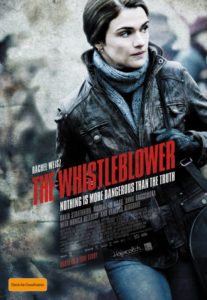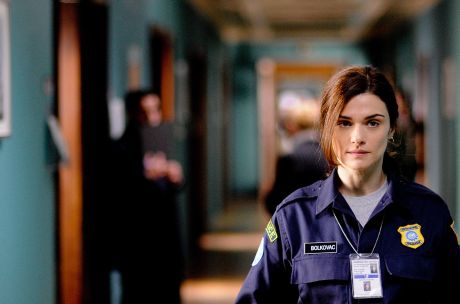Director: Larysa Kondracki
Runtime: 112 minutes
Starring: Rachel Weisz, Monica Bellucci, Vanessa Redgrave, Benedict Cumberbatch
Distributor: Hopscotch
Country: Canada
Rating: Wait for DVD/Blu-ray (?)
Human-trafficking has been disturbingly reported as the second most profitable business for organized crime next to drugs, and one of the fastest growing “industries” in the world. UN.GIFT, the global initiative in fighting human-trafficking, estimates that 2.5 million people are in forced labour, including sexual exploitation, at any given time.
Filmmakers have begun to tackle this difficult, but largely “hidden in plain sight”, issue. From documentarian Nick Broomfield’s Ghosts, through to more prominent pieces such as Danny Boyle’s Academy Award winning Slumdog Millionaire and to a lesser extent, Hollywood fodder like Pierre Morel’s abysmal Taken, there is a universally recognised urgency to these stories . The Whistleblower, “based on actual events”, is the latest attempt to shed light on this global crime.
Policewoman Kathryn Bolkovac (Rachel Weisz, Agora), estranged from her children, takes a job from a U.S. military contractor for the UN as a police officer in post-war Bosnia. There she uncovers a scandal involving systematic human-trafficking and the sex-trade of young girls largely involving the very people who were sent there to protect the locals, and who now enjoy diplomatic immunity.
The Whistleblower undoubtedly has an important message at the heart of it. Yet debut director Larysa Kondracki has quite consciously chosen to frame her message film within the confines of the the thriller genre, deliberately avoiding the often clinical examinations that “issues” movies give rise to. Here Kondracki’s script – co-written by Eilis Kirwan, and suggested by Bolkovac and Cari Lynn’s The Whistleblower: Sex Trafficking, Military Contractors And One Woman’s Fight For Justice – is at its strongest. Filling the densely-packed first and second parts of the film with enough twists and turns to create half-a-dozen top-notch political thrillers, the film genuinely keeps the audiences off-balance and, like its lead, not knowing who to trust. Yet it is also unrelentingly grim, and may often feel like one depressing scene piled on top of the next.
The film falters in its final act, attempting to temper the more traditional thriller elements with overt political leanings. While Weisz remains a strong character throughout, perhaps her best since 2005’s The Constant Gardener, she is never wholly drawn. Capable actors Monica Belluci, Vanessa Redgrave and Benedict Cumberbatch might ensure distribution, but are completely wasted in meaningless cookie-cutter roles. As the film winds down through a series of difficult torture scenes, The Whistleblower switches gears to moral grandstanding, and like Fair Game before it, there is a good thriller in there behind the sometimes confused undergraduate essay.

The Whistleblower is released in Australia on 29 September 2011 from Hopscotch.






